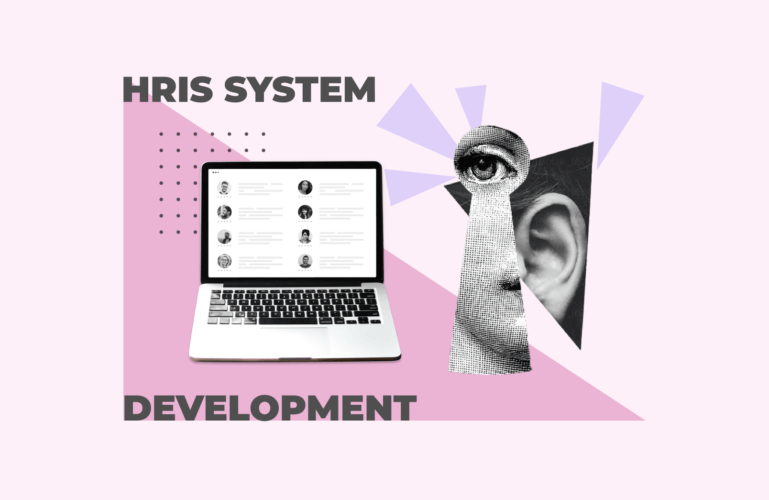In a world jam-packed with digital solutions, there should not be the need to talk about the importance of quality assurance. The competition is too high and there’s no room for error.
Unfortunately, not all businesses are ready.
Many companies don’t have strong QA professionals and polished testing processes. Moreover, those who develop solutions in the midst of a crisis lack time and resources but desperately need fast, high-quality results.
Even when everything in your testing processes seems to be fine, there may be hidden problems that act like a ticking time bomb and require a on-time solution.
That is where timely QA consulting comes into play.
In this article, we reveal the warning signs that show you might be failing to cope with quality assurance and outline what to expect from software testing consultancy in every situation.
#1. Poor quality of the product
The overall low quality, unexpected issues on production, and unstable software behavior often lead to serious business problems like financial losses or decreased customer retention.
These issues serve as a wakeup call that makes businesses take decisive actions.
Just think about it – around 48% of consumers leave an application because of poor customer experience. And acquiring new customers is 6-7X more expensive than retaining existing ones.
However, in most cases, off-grade quality is just the tip of the iceberg – it is not the root cause but a sign of serious issues in the quality assurance processes that might be anything from a wrong testing strategy or methodology to an incompetent QA team.
Read next – Test automation strategy: how we put product quality on autopilot
How QA consultants can help?
As you cannot improve what you don’t understand, you need to identify all gaps in your processes.
For most teams, it is a great challenge to find mistakes in the processes they follow every single day. It’s hard to remain objective, even for the best in-house testing teams.
That’s why you might need a neutral independent assessment of your company’s current software development and testing practices.
And while consultants may not possess deep experience in your industry, they often have background in a huge range of development business scenarios. An independent advisor is also able to ask stakeholders and managers the questions which internal staff may be reluctant to ask.
MindK offers a 360-degree quality assurance audit and assessment as a part of our software testing consulting services. The audit includes a deep analysis of all the testing processes focused on identifying problem areas and improving product quality.
It is important to understand that the assessment approach is very flexible and adapts to your business needs. To make everything work, we’ll define goals and areas you need assessed. As a rule, we interview the key people including QA engineers and developers, if necessary, senior managers, inspect how you perform testing, and review your existing test documentation.
Along with this, our QA consultants analyze the testing strategy and a set of tools used to run tests and manage teams.
In the end, you receive a list of all the discovered QA gaps and issues, their root causes, and the risks they pose to the software quality.
Identifying the key problems helps improve the overall test process, thereby increasing your chances for success and enriched user experience.
Recently we’ve done a QA process assessment for an insurance company. They have a custom build web application that provides customers with a wide variety of insurance, from pets to fishing equipment.
Based on the analysis, we’ve helped them create a new testing strategy and shared our templates of test documentation so that they can solve issues on their own.
Believe it or not, sometimes, it is enough to apply several minor changes in testing processes and receive a surprising improvement to your testing efforts.
Read next – All you need to know about types of software testing before product launch
#2. Slowdown of product releases
Lengthy development cycles are a bad sign. Especially in the modern cut-throat IT market, when everyone strives to release at lightspeed.
Here, as in the previous case, we deal with the consequence, not with the initial cause. Among the reasons for low-speed testing life cycle and, as a result, software release are:
- ignoring automated testing practices;
- tight release schedules leaving no time for testing;
- lack of stability and reliability in test automation;
- non-optimized test execution management;
- bad quality visibility and unclear feedback loop;
- inappropriate testing set of tools for project capabilities and needs;
- neglecting end-to-end tests and parallel testing;
- poor testing culture;
- lack of QA resources, and others.
What can the test consulting provider do with it?
The good news is that any business has a chance to accelerate the release cycle and stay ahead in the competitive race by setting up an effective testing process.
When the company is not able to solve this problem internally, external QA experts can help scale up production without much burden.
The MindK team deals with such issues by reviewing the whole testing lifecycle and developing a strong QA strategy. Each project is unique so there is no one-box solution, the strategy is specific to the project.
Quite frequently, the cause of release showdown lies in the absence of tests automation or pitfalls within automated testing processes. The world quality report states that 61% of respondents have difficulties in automating their QA processes.
If there is a need to introduce test automation to your project, QA consultants provide a groundbreaking test automation strategy to accelerate your test execution time.
We start any test automation strategy by defining which tests to automate. Based on our experience, the best examples are the tests that:
- are highly repetitive;
- involve high risks (for example, business-critical test cases);
- check the stability of features;
- require testing over multiple browsers, devices, or configurations;
- are too time-consuming for manual testing;
- involve multiple options (like submission forms).
After this, we define the testing methods (unit testing, regression testing, end-to-end testing, etc.) that will provide the maximum value when automated. Then, QA consultants help you to select the testing tools that suit the project needs, as the overall automation testing largely depends on the right testing frameworks.
As a result, you get a working test automation strategy able to improve your testing structure, QA methodologies, and test environment, so that you can boost the delivery time and achieve better ROI.
Read next – How to save 75% on fixing bugs
#3. Expensive QA activities
Keeping the costs of the project low is the key to boost the revenue of your business.
World practice shows that QA and testing costs vary from 25 to 40% of the project budget.
If the cost of QA exceeds these numbers, you have hidden issues in the testing lifecycle requiring a professional opinion.
The reasons for this may vary, most of which are worsened by the fact that testing is done at the wrong time. For example, at the end of a project, the budget is overstretched and fixing errors becomes too expensive and time-consuming.
What QA consulting can bring to the table?
As far as the concept of value is multidimensional, experienced QA consultants will examine your testing process to find the answer to the following questions: what makes testing expensive, when it becomes expensive, where it is expensive, and who makes it expensive.
Based on the answers, you’ll receive a clear understanding of the total expenses of your project, as well as practical recommendations on building precise budget planning.
The whole action plan, in such a case, is focused on bringing down the costs.
You benefit from consulting in two ways.
First, the review and the improvement plan increase your test efficiency and thus cut the cost of quality assurance. By hiring a testing consultant you get access to the testing experience gained from dozens of projects.
Second, QA consulting providers can supply you with state-of-the-art testing professionals for your specific needs. An outsourced testing team may significantly reduce the cost of your QA process.
Read next – Test automation framework: how to find the right one
#4. Excessive workload of QA engineers
This challenge may indicate several problems including a lack of resources, expert qualification, or excessive time pressure.
We saw IT projects without the QA team on board where all the testing was done by developers. In such a case you risk wasting the talents of your engineers by making them amateur testers.
There are also situations where all the QA work is done by several testing experts unable to cope with the huge project scope or specialists with a lack of needed knowledge. We won’t even talk about the projects where testers struggle meeting deadlines and reaching expected testing coverage.
These are perfect examples of what you should not do. It is a slippery slope as in most cases, high workload is the least of the problems you may face in the future.
What solution offers QA consulting?
A QA consulting provider can evaluate your testing process to reveal the reasons for the hyper-workload.
Depending on the state of your QA and gaps revealed, you can receive professional advice on how to optimize the resources and give your development and QA team an opportunity to concentrate on priority tasks.
These recommendations can include:
- a completely new approach to testing. It may involve a completely new approach to testing that may include a different testing methodology, a more structured workflow, or testing roles hierarchy. This will allow your QA staff to get a better understanding of the scope and take responsibility for their parts of the work.
- expert advice on organizing effective processes to cut miscommunication between the parties involved and treat the QA team as an integral part of the development lifecycle.
- better estimation of the testing scope as things are bound to fail if the development starts with inaccurate expectations.
- cost-benefit analysis for test automation that will show whether it is reasonable to apply automation to decrease the burden on the QA team.
- an updated set of testing tools to widen the possibilities of the testing engineers and contribute to their working workflows.
many others.
As QA consulting involves a huge range of services, it doesn’t matter if you need just some improvements in processes or a dedicated team of QA engineers with the required expertise, there is always a solution for your needs.
#5. Lack of professional niche and full-stack testing expertise
In some cases, businesses have battle-tested internal quality assurance resources but lack certain expertise in testing domains or innovative approaches.
There are three ways you can handle it – hire necessary specialists, outsource, or train an internal team.
Hiring missing experts may often involve heavy expenses that most businesses cannot afford. Remember, an employee’s salary is only the tip of the iceberg. Secondary costs may include everything from the social package, recruiting expenses, and training costs, plus the risk of disagreements with existing employees.
What does software testing consultancy offer instead?
In this light, training internal staff and outsourcing look more cost-effective. Most QA consulting companies provide you with both.
Software testing consulting services can prepare your in-house team to handle various aspects of the entire QA process.
MindK offers QA training and workshops focused on practical knowledge, not on theoretical concepts. During the training sessions, our QA experts share best practices gained from years of testing experience. All the training activity is customized for your current request and may include workshops dedicated to:
- effective quality evaluation;
- enhanced testing processes;
- well-formed QA documentation;
- new testing approaches and methodologies;
- test automation introduction;
- writing test scripts;
- test automation tools, and similar stuff.
Thus, a partnership with a QA consulting company helps you avoid costly hiring overheads and develop an internal testing culture.
You can get access to the right QA skills on-demand and outsource testing activities to external pro teams.
Lessons from the front lines: when hiring a software QA consultant may be also helpful?
QA consulting is the wellhead of benefits for businesses that want to improve their products and fight for a place in the sun. The testing and development process are not static and need to adapt to changing business conditions.
Here are a few more situations when you may need the help of a software testing provider:
- growing IT project or the increasing number of projects that require better documentation and a more structured QA approach;
- necessity for effective budget planning to get a reasonable estimate of the testing costs;
- adoption of new software development methodologies or practices like continuous integration or test-driven development;
- fast growth or company reorganization that needs completely new testing processes;
- issues in communication between QA and other development teams;
- lack of QA resources on the project or non-established QA strategy at all;
- boosting time-to-market without quality downgrade;
- lack of transparency and control to receive a full picture of the testing lifecycle;
- necessity for an effective testing environment that takes into account all ins and outs of your business processes, etc.
MindK has been offering a wide range of software testing consulting services for almost 10 years and we are happy to help dozens of companies improve their testing competence and increase ROI.
To make it happen we do an in-depth health check-up for existing QA processes, uncover bottlenecks, work out innovative testing strategies and transfer knowledge to your in-house team. If you are looking for a reliable partner to optimize your QA processes, just drop us a line.





